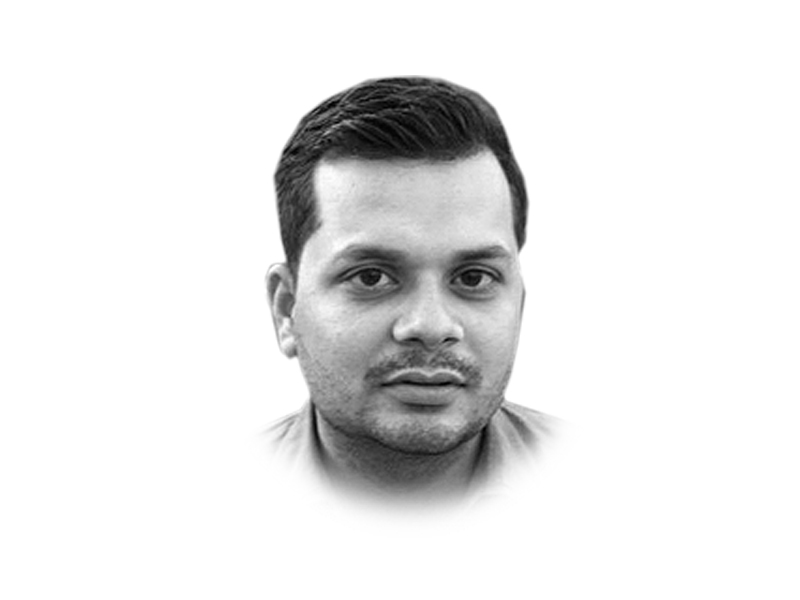
When societies and nations go through political transformation, it is only to be expected that the political winds will also affect the media. For instance, the rise of the Aam Aadmi Party (AAP) in India has mesmerised so many journalists, in Delhi and elsewhere, that they have joined the party or become so sympathetic to it that they seem like propagandists. Yours truly is facing similar allegations from friends, including journalist friends who are blind to their own sympathies for the Bharatiya Janata Party (BJP) or the Congress.
Years ago, when I went across Uttar Pradesh to ask the Dalits why they vote for their leader Mayawati — a question the Indian media’s target audience did not want asked — I was branded a journalist sympathetic to Mayawati’s party, the Bahujan Samaj Party. Some jokingly asked when I was getting a seat in parliament. All I was doing was my job, asking a community why they voted for one leader and not another.
Journalists and commentators who are inclined towards the BJP’s worldview often complain that pro-Congress journalists are seen as neutral, independent and objective, whereas journalists with right-wing leanings are branded BJP spokespersons. The Radia tapes showed us that respected big names of Indian journalism could even act as go-betweens for the Congress party and yet, no one will ask them when they were getting seats in parliament (having already received civilian honours from Congress governments). The Hindu right practises a mirror image of hypocrisy: hailing journalists and commentators who say what they want to hear, labelling the critics of the BJP “biased”, “bought over” or ideologically sympathetic to the other side.
There is no such thing as journalistic objectivity. All eyes and pens are subjective. You can expect fairness and honesty, but two different human beings can judge the same situation differently. Journalists are also human beings, they are also citizens, they are shaped by nationality, time, place. They also have a stake in the politics of their country. It is but natural that they have political inclinations, especially because they don’t have a compulsion that media owners have: business interests, which often need to bow down before the party in power.
Yet, there is a red line, a lakshman rekha. With so many journalists joining political parties, especially the AAP, it becomes difficult to be appreciative of the AAP because a lot of people might think you’re trying to impress it to get a ticket. Yet, this is an old problem: the Congress and the BJP have long given Rajya Sabha (indirectly elected upper house of the parliament) seats to their loyal editors. I feel that journalists (and bureaucrats) should declare that they would never join a political party or accept a Rajya Sabha seat (thankfully, yours truly is too small a fry to be offered even a lollipop). It would be easier to take political sides on critical issues if the reader or viewer didn’t wonder if you are doing so to be in power.
It is one thing to have political inclinations and another to cross the line and become a politician. And then there is a power hungry man without a conscience. Two famous editors in the news recently, are examples of the third category. The late Khushwant Singh made his Illustrated Weekly of India a propaganda tool for Indira Gandhi’s son Sanjay, who thought he was the constitution when his mother had imposed the Emergency in 1975. Khushwant Singh was a darbari and remained one until he became a darbar of a kind himself. He would not have had to return his civilian honour (the Padma Shri) in 1984 to protest the Indian Army’s siege of the Golden Temple in Amritsar (Operation Bluestar) if he had not accepted the honour in the first place in 1974.
Published in The Express Tribune, March 28th, 2014.
Like Opinion & Editorial on Facebook, follow @ETOpEd on Twitter to receive all updates on all our daily pieces.
COMMENTS (7)
Comments are moderated and generally will be posted if they are on-topic and not abusive.
For more information, please see our Comments FAQ
1732503274-0/Untitled-design-(43)1732503274-0-405x300.webp)
1732501636-0/Untitled-design-(42)1732501636-0-165x106.webp)

1732498967-0/Outer-Banks--(1)1732498967-0-165x106.webp)
1732086766-0/BeFunky-collage-(74)1732086766-0-165x106.webp)












He would not have had to return his civilian honour (the Padma Shri) in 1984 to protest the Indian Army’s siege of the Golden Temple in Amritsar (Operation Bluestar) if he had not accepted the honour in the first place in 1974.
Khushwant Singh was a writer not a psychic to see ten years into the future.
Yet another nonsensical piece ranting about irrelevant stuff. He calls himself too small a fry but fact is Shivam Vij's propaganda spewing, anti-India filth has earned him some excellent foreign funding. Only if he kept his sanctimonious judgmental advice to himself. But like his idol Kejriwal, his actions are different from his words.
That was an interesting topic.........and you voiced your thoughts well.
good to see you are admitting many journalists are being AAP propagandists. However, try to reflect more and think more about your own biases and prejudices. PEOPLE who call themselves.Hindus in India can have.and do have grievances. Hypocrisy of the so.called secularist journalists actually propels BJP's.popularity.
The problem starts when journalists/editors start pontificating. Journalists need to only report honestly, not make value judgements. To judge and draw conclusions is the job of the reader.
I agree with most of the points, but picking Khushwant Singh's association with Snjay Gandhi is not fair. Perfection is not in the lot of humanity, he made mistakes in his life, but he was a great writer, he told the truth even when it hurt the mighty and his pen was an enlightenment for a generation of so many people. Look at other authors of yesteryears, Dickens, Shakespeare and others who sold their soul for small money. They are still great light to literature and millions have been reading them for centuries.